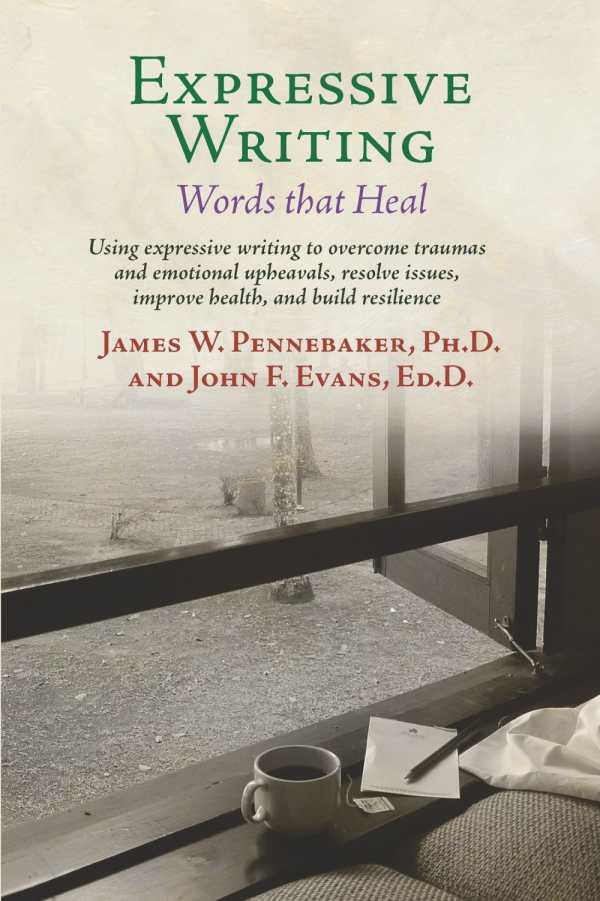Expressive Writing
Words That Heal
Aware of the fragility of many who have endured emotional tragedy, the authors ease beginning writers into this exploratory process.
A successful collaboration between James W. Pennebaker and John F. Evans, Expressive Writing: Words That Heal, presents a writing program designed to help people recover from emotional trauma.
Unlike journal writing, a more random approach to unlocking personal problems, this discussion on the process of expressive writing provides extensive guidance and structure. Separated into three parts, the book’s introductory section covers material from a previously published book by Pennebaker. The second and third sections combine the expertise of both authors. A researcher by profession, Pennebaker cites statistical evidence confirming that people who write about traumatic experiences make fewer doctor visits and lead happier lives. Evans, a therapist who personally knows the benefits of expressive writing, has also written a book on the subject. The third section consists of more expansive writing techniques, such as storytelling and poetry writing. Suggested resources, a reading list, references, and additional scientific readings conclude the book.
The conversational writing style sets a relaxed tone. Participants are urged to trust their intuition and choose only those aspects of the program that put them at ease. Clearly written instructions introduce each writing lesson, including consideration of where to write, optimal time of day for writing, and whether to write on paper or to use a computer.
According to Pennebaker and Evans, the ability to tell an understandable story about an unpleasant experience correlates to a person’s degree of improved health. With that in mind, the book includes information about story construction: “For example, words such as cause, effect, because, reason, and rationale suggest that the writer is conveying what may have caused what.” Being aware of these words helps participants write more comprehensibly.
The longer transactional writing exercises allow for participant feedback in post-writing surveys, which provide valuable information about how people react to and benefit from the expressive writing experience.
This joint effort of Pennebaker and Evans offers succinct guidelines for individuals interested in exploring and writing about the emotional events that keep them from leading fully productive lives. The authors, aware that many people who embark on this challenge have little formal writing experience, provide satisfactory instructional support. The book’s emphasis on content overrides its utilitarian design components. The dense narrative could benefit from additional white space.
Overall, Expressive Writing: Words That Heal, offers significant value to readers interested in maximizing their mental and physical health.
Reviewed by
Margaret Cullison
Disclosure: This article is not an endorsement, but a review. The publisher of this book provided free copies of the book to have their book reviewed by a professional reviewer. No fee was paid by the publisher for this review. Foreword Reviews only recommends books that we love. Foreword Magazine, Inc. is disclosing this in accordance with the Federal Trade Commission’s 16 CFR, Part 255.

